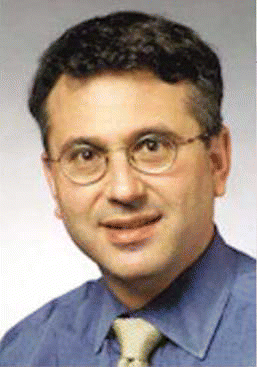A new SAHP task force redefined CRS as a group of disorders characterized by inflammation of the mucosa of the nose and paranasal sinuses of at least 12 consecutive weeks’ duration, in its research-oriented 2003 report, Adult chronic rhinosinusitis: Definitions, diagnosis, epidemiology, and pathophysiology, which focused only on adult CRS. The task force determined that chronic bacterial rhinosinusitis as the primary etiology of CRS is no longer appropriate, since CRS is bacterial in less than half the cases, said contributing author J. David Osguthorpe, MD, Professor of Otolaryngology-Head and Neck Surgery at the Medical University of South Carolina in Charleston. We didn’t even use the word ‘infection’ in our definition of CRS, preferring ‘inflammation,’ which is the final common pathway of many etiologies.
Explore This Issue
April 2006Attention shifted away from bacterial infections and toward underlying inflammation as the cause, especially since research during the six-year time span between reports found that CRS can result from multiple factors, such as allergies, fungus, medication, trauma, immune deficiencies, anatomic anomalies, pollution, and genetics.
We are beginning to understand and identify the causes of CRS and subsequently rethink how to effectively manage the disease since more research, resources, and energy have been committed to it. – Jack Anon, MD
What the Research Says
For example, a large, multi-center, double-blind, placebo-controlled study conducted at the Mayo Clinic in 1999 found that CRS was often fungal in origin; it is the immunologic response to the fungi that results in the symptoms (Mayo Clin Proc. 1999;74(9):877-884). Prior to this research, the presence of fungi in the nasal mucus was infrequently detected, due to the unavailability of a sensitive staining method and improper handling of specimens. Another study from the Mayo Clinic describes a new process used to identify fungus in the mucus of patients with CRS (Otolaryngol Head Neck Surg. 2002;127(5):377-383). In some studies, investigators cultured fungi from nearly 100% of patients with rhinosinusitis and nasal polyposis (Ann Otol Rhinol Laryngol Suppl. 2004;193:27-31), but in some subsequent studies, the fungal predisposition was much less obvious.
These findings created somewhat of a controversy. There is, however a good amount of data and basic science to back it up, said Dr. Slavin.
Diagnosing the Disease
With the understanding now that CRS is a multifactorial, inflammatory disease, otolaryngologists have to approach CRS with all of the disease entities in mind if they are to identify the correct etiology and hence be able to treat it effectively, Dr. Osguthorpe.

Leave a Reply